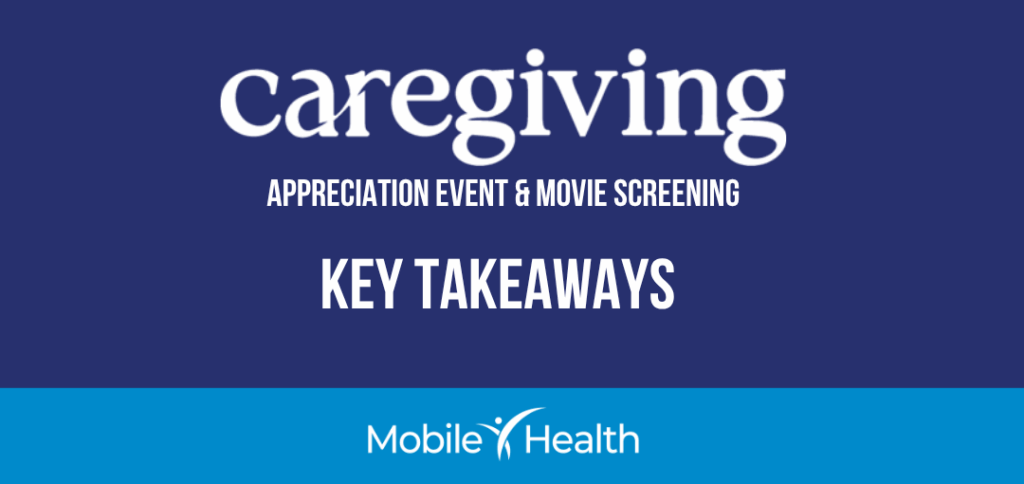Mobile Health recently brought together healthcare leaders, home care agency executives, and caregivers for a critical conversation. This was a response to an industry in crisis, and an urgent call to action for the home care sector that serves millions of vulnerable Americans.
The Crisis That Brought Us Together
America faces a caregiving emergency on two fronts. While 63 million unpaid family caregivers struggle to balance work and care responsibilities, the professional home care industry is collapsing under workforce pressures that threaten access to care.
The numbers are devastating. The median turnover rate for professional caregivers reached 79.2% in 2023, with nearly four out of five caregivers leaving within the first 100 days. Eighty-nine percent of home care providers have had to deny care because of workforce shortages, refusing an average of 510 care hours monthly. Behind each refused hour is a vulnerable senior who needs help with basic activities like eating, bathing, or taking medication.
The industry needs an additional 1.2 million direct care workers by 2030, but 59% of home care agencies already operate with insufficient staff. The question isn’t whether this is a crisis. It’s whether we can solve it before the system breaks entirely.
What We Learned: Insights from Industry Leaders
Our panel discussion, “From Crisis to Solutions: Supporting the Complete Caregiver Journey,” examined why this crisis exists and what actually works. Moderated Kenneth Faltischek (CEO of Mobile Health), panelists included Jim Rolla (SVP at VNS), Al Cardillo (President of HCA-NYS), Paul Essner (Senior Managing Director at Risk Strategies), Matt Cauli (caregiver and founder of The Dedicated Caregiver), and Chris Durrance (director and senior producer of Caregiving).
Why 77% Turnover Persists
Panelists identified the perfect storm: The median hourly wage for home care aides is $15.14, with fewer than 20% receiving health insurance. Caregivers manage complex medical tasks with minimal training. Unpredictable scheduling makes planning childcare or education impossible, with research showing just 30 days of schedule chaos increases turnover odds by 20%.
What Actually Works
Better Onboarding Changes Everything
Mobile Health’s occupational health services directly address the onboarding challenge with industry-leading turnaround times for pre-employment screenings, drug testing, TB testing, and compliance documentation. When agencies can complete the hiring process in days rather than weeks, new caregivers start earning sooner and patients receive care faster.
Technology to Reduce Burden
Digital scheduling and automated paperwork free caregivers to focus on actual care rather than administrative tasks. Mobile Health’s digital platforms similarly streamline compliance and health screening processes, reducing the administrative friction that diverts agency resources away from caregiver support and training investments.
Continue the Conversation
Mobile Health remains dedicated to supporting home care agencies through this crisis. Our occupational health solutions accelerate caregiver onboarding, streamline compliance, and reduce administrative burden. With industry-leading turnaround times and a nationwide network, we help agencies get caregivers into the field faster.
As our event demonstrated, when we share evidence-based solutions and commit to systemic change, progress becomes possible. We invite you to continue this conversation. Watch the Caregiving documentary on PBS. Share what’s working in your organization. And recognize that every action supporting caregivers strengthens the foundation of care that millions depend on.
To learn more about how Mobile Health supports home care agencies, visit our website or contact our team directly.
-
 Written by:
Written by:
Tricia Chen-Weis, RNTricia Chen-Weis is a seasoned healthcare professional with a passion for operational excellence and patient care. Joining Mobile Health in August 2019, Tricia quickly made her mark improving patient care and clinical operations as Site Manager in Mobile Health’s 36th Street and Staten Island location. With a bachelor's degree from the University of The West Indies and a nursing degree from Monroe College, Tricia's educational foundation provided her with the knowledge and skills necessary to...
